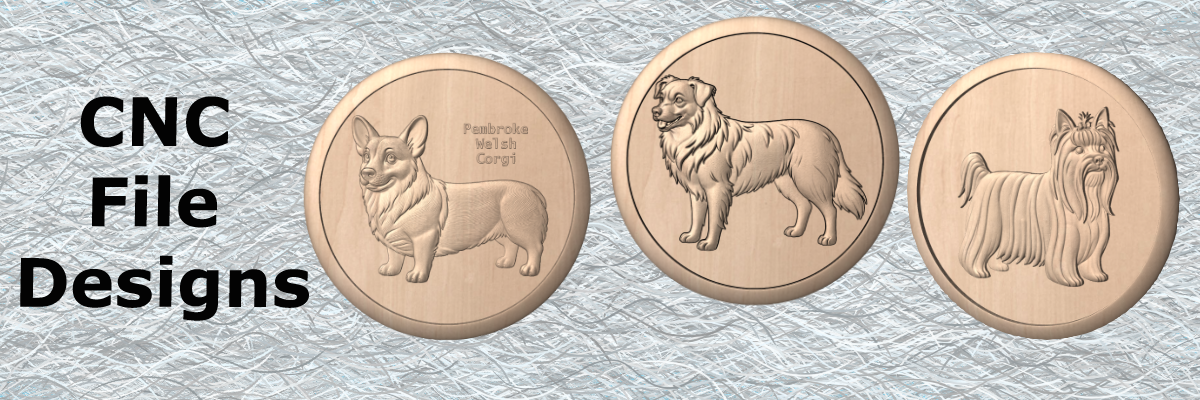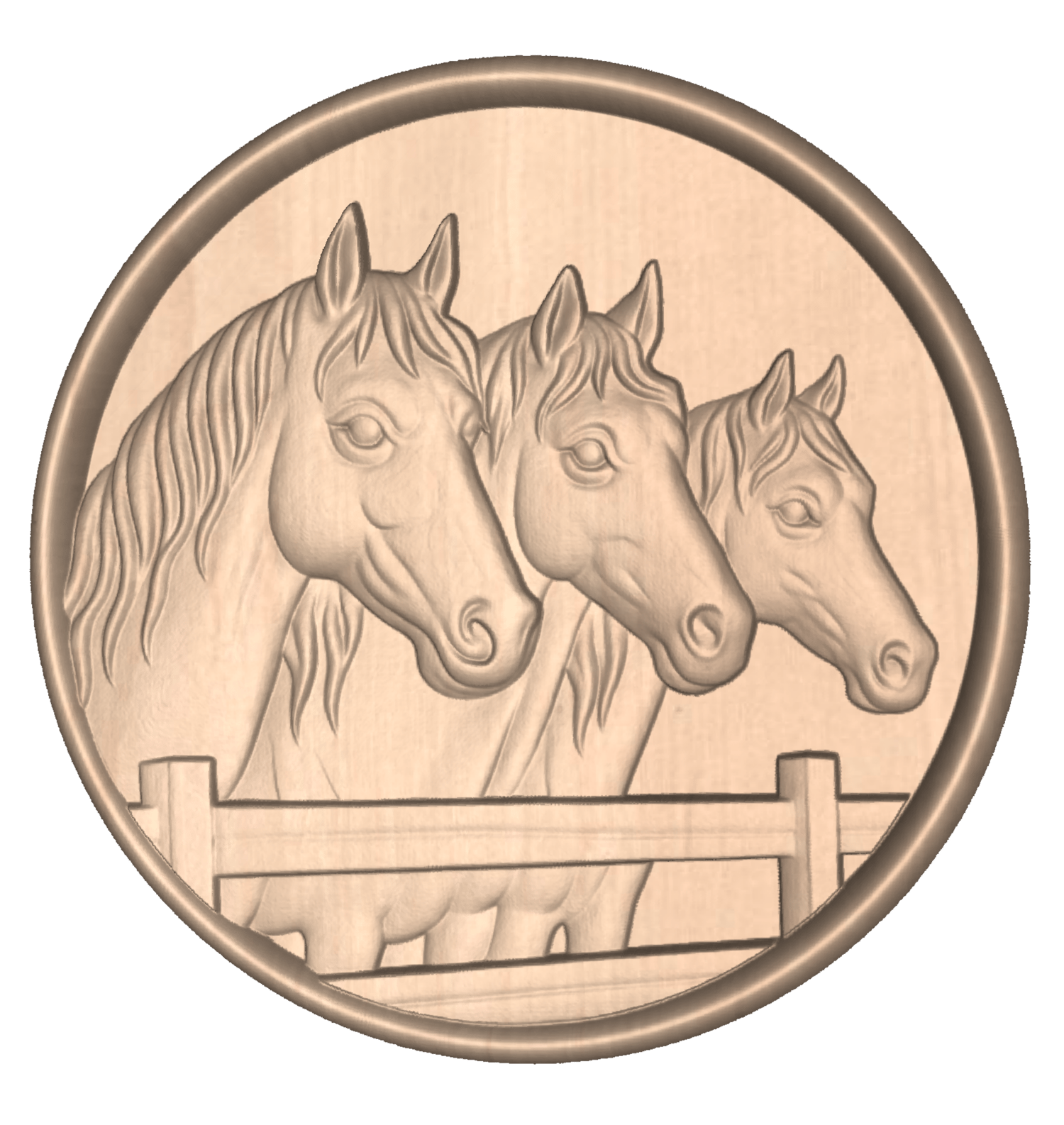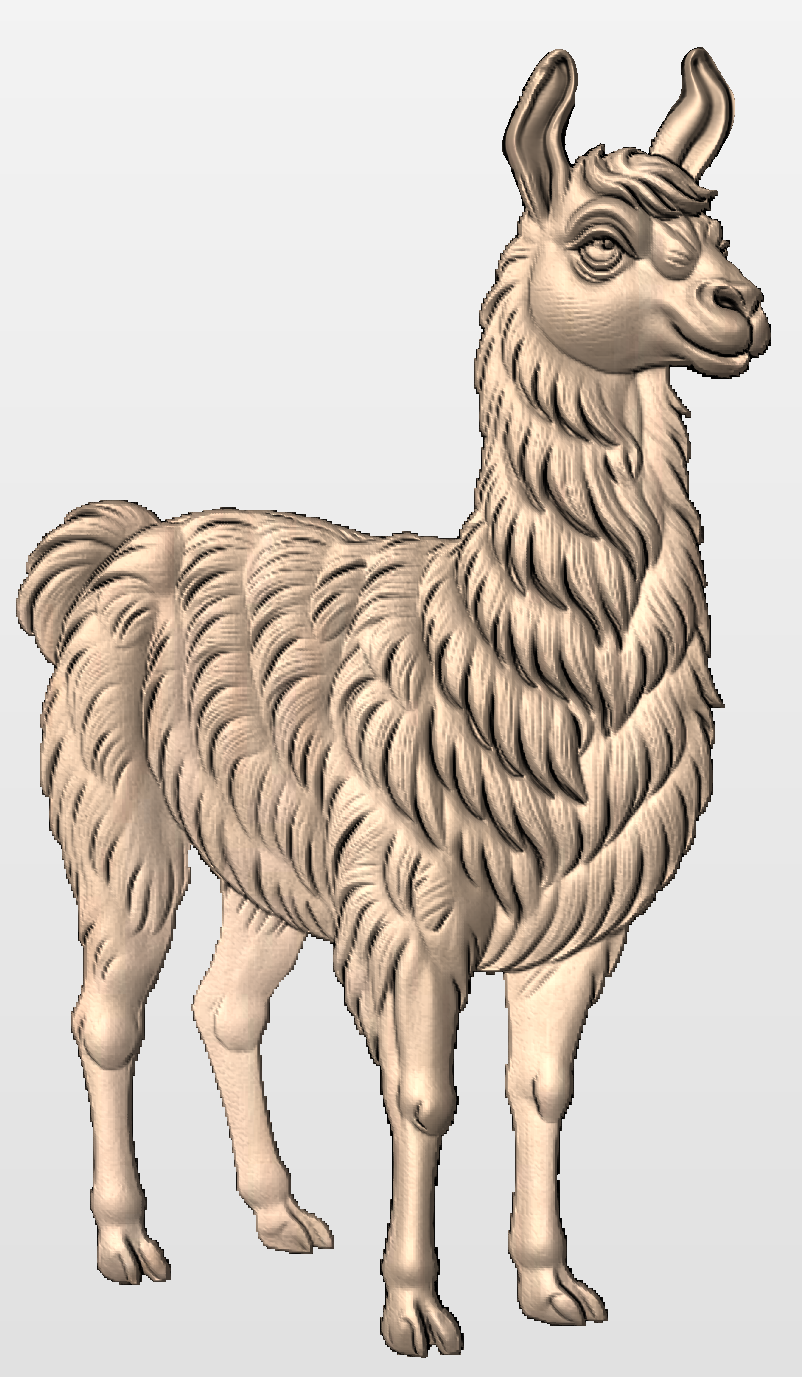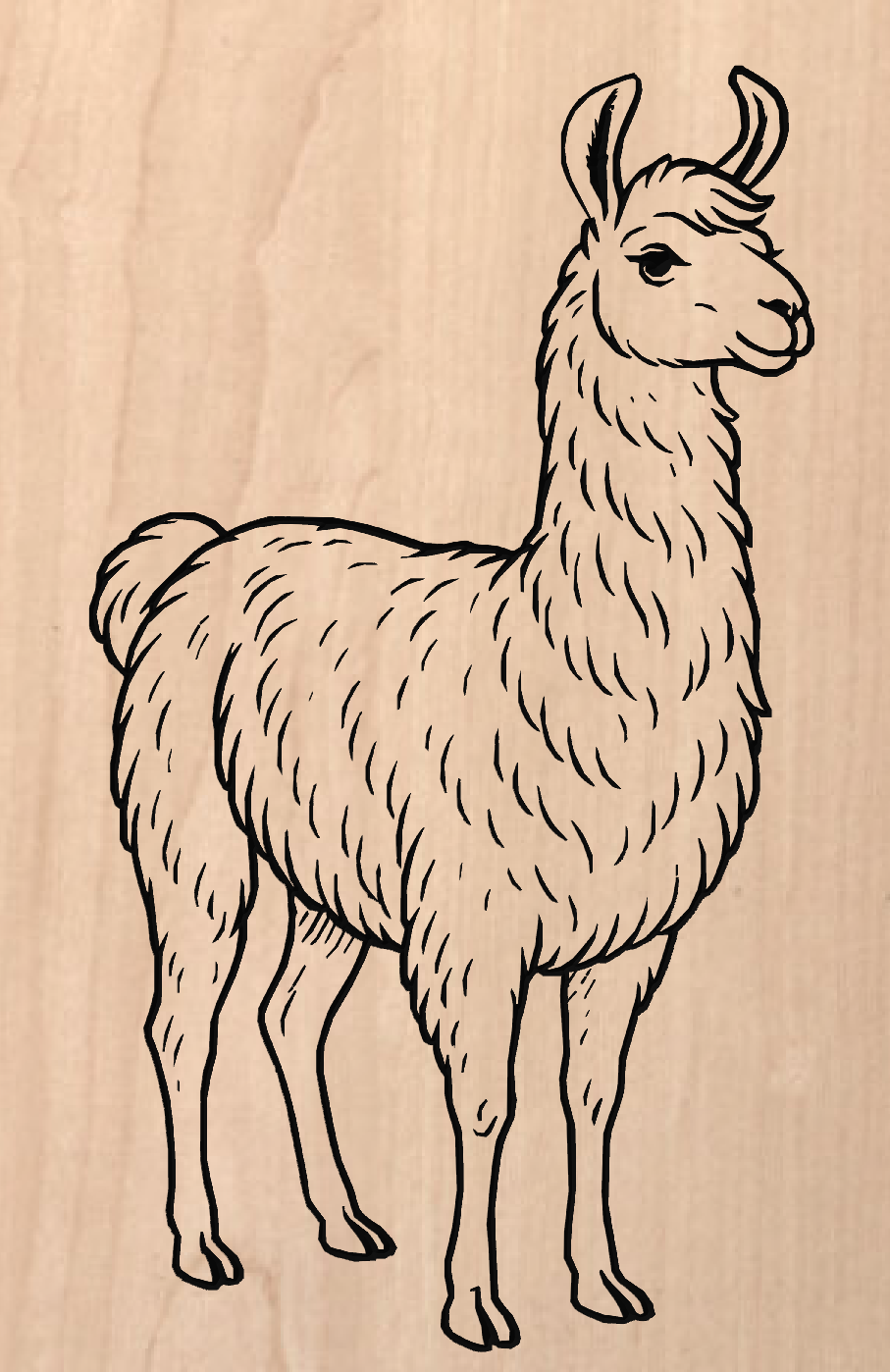Llama 3d relief CNC carving file
On Sale
$5.00
$5.00
A llama is a domesticated South American camelid, closely related to alpacas, vicuñas, and guanacos. Here’s the breakdown:
Physical Description
- Llamas are medium- to large-sized animals, standing about 5.5–6 feet (1.7–1.8 m) tall at the head and weighing 280–450 pounds (127–204 kg).
- They have long necks, banana-shaped ears, and thick, woolly coats that can range from white to brown, black, or spotted.
- Unlike camels, llamas do not have humps.
Behavior and Temperament
- Llamas are social, herd-oriented animals and communicate with body language and soft humming sounds.
- They’re generally gentle but will spit or kick if threatened or annoyed.
- Intelligent and trainable, they’re often used as pack animals.
Habitat and Origin
- Native to the Andes Mountains in Peru, Bolivia, Ecuador, Chile, and Argentina.
- Domesticated by Andean peoples for thousands of years as beasts of burden, for wool, and occasionally for meat.
Uses
- Pack Animals: Llamas can carry loads of about 25–30% of their body weight over rough mountain terrain.
- Fiber Production: Their wool is prized for being soft and lanolin-free, used in textiles and rope.
- Guard Animals: Llamas are sometimes used to protect sheep or goats from predators like coyotes.
- Companionship and Therapy: Friendly nature makes them popular in petting zoos and therapy programs.
Fun Facts
- Llamas have a three-compartment stomach and are efficient grazers.
- Their padded feet make them less damaging to fragile mountain ecosystems compared to hooved livestock.
- They can live around 20–25 years.






